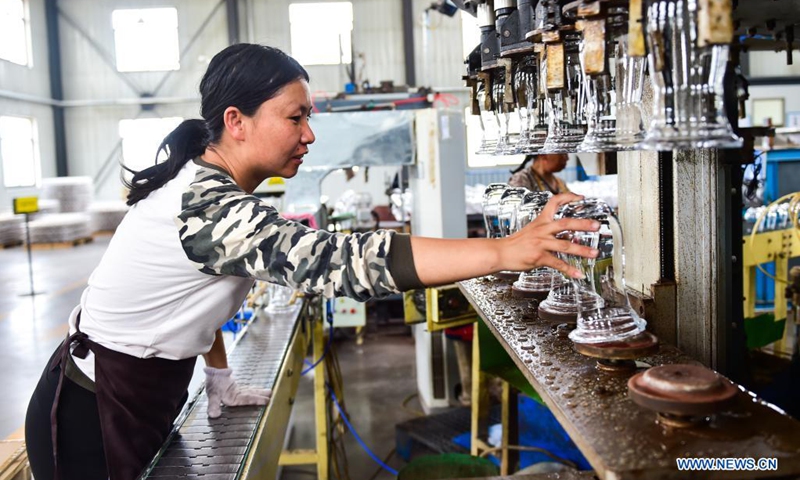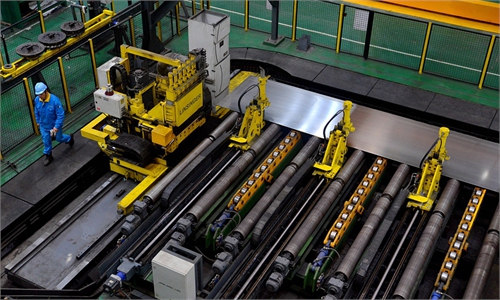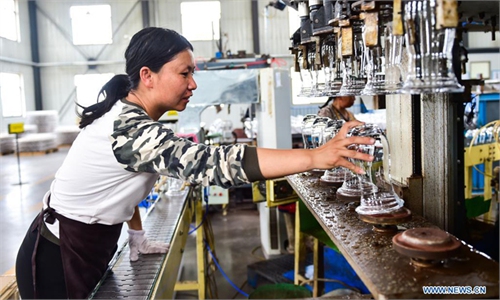
A worker makes glassware in Qixian County, north China's Shanxi Province, May 26, 2021. Glassware made in Qixian County has been exported to over 80 countries and regions.(Photo: Xinhua)
China's manufacturing purchasing managers' index (PMI), a main gauge of factory activity, eased to 51.0 in May, but it still indicated an expansion in manufacturing activity, the National Bureau of Statistics (NBS) announced on Monday.
The May reading was down a slight 0.1 points from April, according to the NBS. The manufacturing PMI peaked in March at 51.9, but it then declined to 51.1 in April and 51.0 in May.
A number above 50 indicates an expansion in activity, while a reading below that signals a contraction.
The COVID-19 epidemic has continued to spread in China's neighboring countries, which has significantly affected Chinese businesses that need to cooperate with foreign companies, Dong Dengxin, director of the Finance and Securities Institute of Wuhan University, told the Global Times on Monday.
If these countries can't contain the virus effectively, Chinese businesses will remain at risk, Dong added.
The continuous surge in prices of raw materials and bulk commodities was another crucial factor in the decline of the PMI, according to Dong.
Soaring prices have made it more difficult for companies - especially midstream and downstream ones - to manage their production costs, analysts said.
The PMI for small enterprises was 48.8, down 2.0 points from April, while the readings for large and medium-sized enterprises stood at 51.8 and 51.1, respectively, in May, up by 0.1 points and 0.8 points over the previous month.
The rise in commodity prices and the decline in demand had a bigger impact on smaller enterprises, which shows there's more need to increase policy support for them so they can continue to create jobs, Liu Xuezhi, a senior macroeconomic analyst at Bank of Communications, said in an analysis released on Monday.
Chinese officials have since taken firm actions to stabilize the commodities market and vowed to support small businesses to cope with impact from the skyrocketing prices.
The comprehensive PMI output index was 54.2, up 0.4 points from April, reflecting how China's production and operating activities expanded steadily in May.
Global Times



